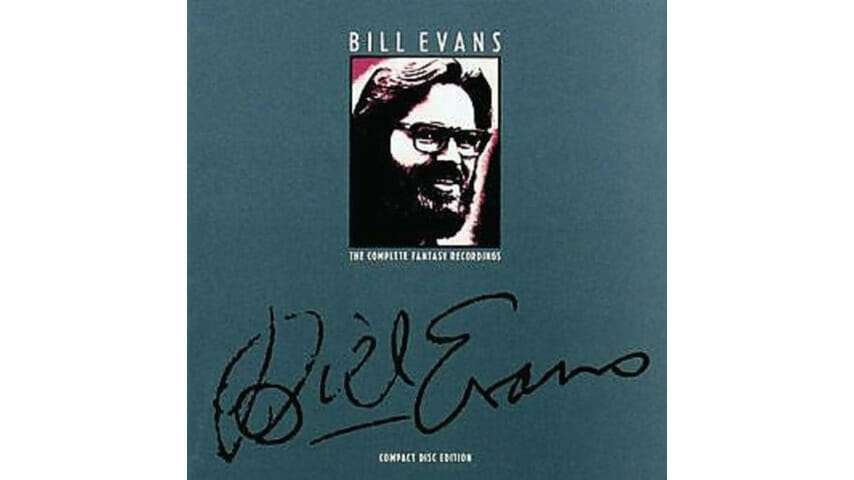
Bill Evans, one of the finest men to ever sit down behind a grand piano, could possibly be the saddest cautionary tale of the ravages of heroin within the jazz community during its first four decades.
By the time he signed with the Fantasy Records label in 1973, his appearance was the polar opposite of the clean-cut bespectacled square on the cover of Portrait in Jazz back in 1959. He had those sunken-in junkie cheeks, a grizzled beard and would often be wearing shades instead of his trademark chunky eyeglasses. His image was that of textbook 1970s excess, the likes of which defined the grit of Hollywood back then.
However, the most important thing that connected the ‘59 Bill to the 1970s Bill was the level of eloquence by which he played the piano, clearly evidenced in this sleek and comprehensive nine-disc box set chronicling the entirety of his label run from 1973 through 1979. What’s perhaps most enchanting about The Complete Fantasy Recordings is how it expertly examines just how rooted Evans was to the beauty of the piano, even when he expanded his groups beyond the trio format to include an all-star team of collaborators including the icon Tony Bennett, tenors Harold Land and Wayne Marsh, altoist Lee Konitz, guitarist Kenny Burrell, bassist Ray Brown and drummer Philly Joe Jones. Regardless of whether he was in a quintet or all alone, his ability to capture harmonic perfection every time his fingers touched the ivory was always apparent. He knew the mathematics of the heart better than any recording artist before or since his time with us. And such highlights of this set as the legendary Tokyo Concert album from 1973 and a previously unreleased Paris gig from 1976 are truly a testament to his delicate genius.
On September 15, 1980, the demons of heroin and, later, cocaine finally carried Bill Evans away in what longtime friend and author of this box set’s liner notes Gene Dees refers to as “the longest suicide in history.” But as this essential anthology reveals, he left us with nothing but beautiful, brainy piano jazz right up until the bitter end.